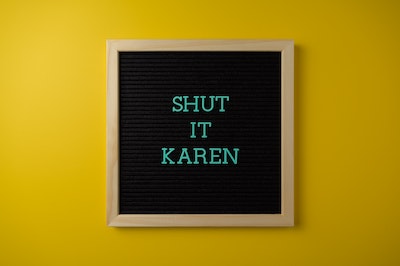Slang is often invented and used by the youth of each generation. These new words, or new ways of using existing words, provide the young with a way of defining their identity, separate from their parents and from the adults of their time. When using slang, the younger generation shows its independence from old fashioned words and ideas. Slang is a verbal code of sorts, shared within the members of a larger cultural peer group, a bond which creates an “us” and a “them”.
Would you like to peek into the world of slang? How many of the following definitions do you know? Continue reading to test yourself on these 15 common words or phrases that have developed new meanings over the last decade.
1. Ate That
Traditional usage: Simple past tense of the verb “to eat”.
Example: “The kids ate that candy in one gulp.”
Slang: To do a really good job, to hit it out of the park.
Example: “He ate that racetrack!”
2. Cap
Traditional usage: A type of hat with a visor in the front.
Example: “She put on her baseball cap before she went to the game.”
Slang: Lying or being insincere. (No Cap: no lie, telling the truth.)
Example: “You cap again like that and I’m going to leave!”
3. Dope
Traditional usage: Someone stupid, a fool.
Example: “My friend behaved like a dope at the party.”
Slang: Cool or awesome.
Example: “The movie I saw last night was dope!”
4. Extra
Traditional usage: Added to an existing or usual amount or number.
Example: “They added extra sugar to my coffee.”
Slang: Melodramatic, too much.
Example: “She’s so extra.”
5. Flexing
Traditional usage: To bend, to contract a joint.
Example: “The boxer was flexing his muscles.”
Slang: Show off
Example: “He was flexing all day because he got a “A” on his math test.”
6. Karen
Traditional usage: A girl’s name.
Example: “They named their baby Karen.”
Slang: An angry, petty, entitled, rude, sometimes racist, sometimes white woman.
Example: “That woman over there was such a karen.”
7. Lit
Traditional usage: Illuminated, burning.
Example: “After we finished setting up the tent, I lit the campfire.”
Slang: Enjoyable, amazing, exciting.
Example: “Last night’s poker game was lit.”

8. Mittens
Traditional usage: Hand coverings for winter with four fingers together and the thumb separated.
Example: “She put on her mittens to play in the snow.”
Slang: Something between amazing and not too bad, so-so.
Example: “The concert was mittens.
9. Rent Free
Traditional usage: Living in a place without paying money.
Example: “The family was living in the apartment rent free.”
Slang: Not being able to stop thinking about someone.
Example: “Dude, she’s living rent free in your mind.”
10. Salty
Traditional usage: Tasting of or contain salt.
Example: The sea water tasted salty when it got into my mouth.
Slang: Bitter, upset.
Example: “She was so salty after he didn’t call her.”
11. Ship
Traditional usage: A large boat, a seagoing vessel.
Example: “We must be ready to board the ship at 3:00 pm.”
Slang: Supporting the idea of two people being involved in a relationship.
Example: “Everyone ships Adam and Lea, but they say they're just good friends.”
12. Sick
Traditional usage: Not feeling well, ill, ailing.
Example: “I didn’t go to the party because I was sick.”
Slang: Cool, awesome.
Example: “That outfit is sick (sic)!”
13.Sweet
Traditional usage: Sugary, opposite of bitter.
Example: “That chocolate fudge cake was sweet and rich!”
Slang: Expressing pleasure or satisfaction.
Example: “I heard you are going to meet us later! Sweet!”
14. Tea
Traditional usage: A hot drink made with boiling water poured over special leaves.
Example: “Our family drank tea every evening after dinner.”
Slang: Gossip. (Spilling the tea (T): the act of gossiping)
Example: “Tell me the tea (T) about that party on Friday night!”
15. Word
Traditional usage: A written or printed combination of letters with meaning.
Example: “She wasn’t sure what the word meant, so she looked it up in the dictionary.”
Slang: When someone speaks the truth, can be said to emphasize something positive.
Example: “You say she called you? Word?” “Word!”
In Conclusion:
On the one hand, slang can create a communication gap between the younger and older generations, perpetuating misunderstandings, and alienation. It is sometimes frowned upon, seen as incorrect, or interpreted as rude.
On the other hand, all healthy languages have mechanisms for change and evolution. Slang reflects an adaptable and active culture and is an indication that a language is changing, thriving, alive, and well.




Have a discussion about this article with the community:
Report Comment
We're doing our best to make sure our content is useful, accurate and safe.
If by any chance you spot an inappropriate comment while navigating through our website please use this form to let us know, and we'll take care of it shortly.
Attachment
You need to be logged in to favorite.
Log In